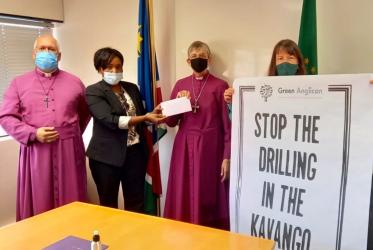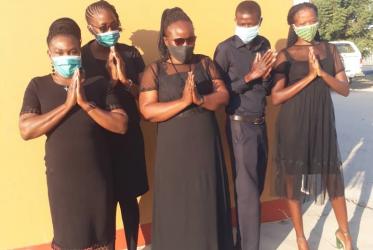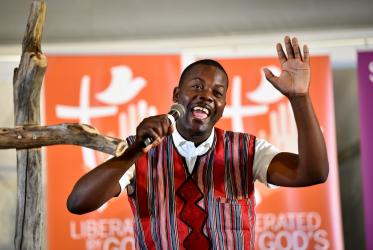As the Lutheran World Federation (LWF) gathered for its 12th Assembly in Windhoek, Namibia from 10-16 May, World Council of Churches (WCC) general secretary Rev. Dr Olav Fykse Tveit presented greetings on behalf of the World Council of Churches, a worldwide fellowship of 348 member churches which represents more than half a billion Christians around the world.
He commended the LWF’s recent preparation of an ecumenical commemoration, together with the Pontifical Council for the Promotion of Christian Unity (PCPCU), of 500 years since the beginning of the Reformation, paving the way from conflict to communion.
“After the prayer of confession and reconciliation in Lund on Reformation Day 2016, those relations will never be the same,” Tveit said. “They have to remain a relationship of love, so clearly said in your words about moving together as pilgrims, in diakonia for the world together. The was even signed by President Bishop Munib Younan and His Holiness Pope Francis, as you were accompanied by the general secretary Martin Junge and Cardinal Kurt Koch, the President of the PCPCU.”
Tveit also noted that the LWF assembly highlights important insights of the one ecumenical movement. “Some of them have come through a new understanding of the harsh and brutal realities in which we live in different parts of the world,” he added. “Some of them have come through new sharing, or at least a better and more open sharing of the gifts of our different theological traditions. Some of them have come through a combination of the two, through a mutual search for the truth that we owe one another: The truth about the world and the truth about God.”
The theme of the LWF Assembly is “Liberated by God’s Grace,” with three sub-themes: Salvation – Not for Sale, Human Beings – Not for Sale, Creation – Not for Sale.
“The theme of this assembly of the Lutheran World Federation is indeed an eminent example of how the ecumenical movement deals with both and combines truth about the world and the truth about God,” said Tveit. “The oikoumene, our common home in this world, is a household, an economy, where we have to work for the best outcome for our life together.”
This work, he continues, should contribute to the economy of fairness and the welfare of all, to the social justice that can weave and support the social fabric we all need for our lives. “In this we recognize that our common home is not only my world or our world, it is God’s world. Every day the God of life is creating our lives,” he said “The Church is a fellowship created by the grace of God."




